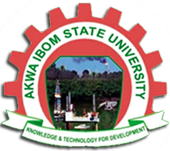Blue Economy and Economic Development in Nigeria
Abstract
This study empirically examines the impact of the blue economy on economic development in Nigeria over the period 1990–2024, situating its analysis within the framework of sustainable growth and structural transformation theory. The blue economy was proxied by fishery production, aquaculture production, renewable freshwater resources, marine transportation, and marine tourism, while gross domestic product (GDP) per capita and the poverty rate served as indicators of economic development. Secondary data were obtained from the Central Bank of Nigeria (CBN) Statistical Bulletin and the World Bank’s World Development Indicators (WDI). The study employed the Augmented Dickey-Fuller (ADF) unit root test and the Auto Regressive Distributed Lag (ARDL) bounds testing model to examine the stationarity properties and long-run equilibrium dynamics among the variables. Empirical results reveal that the blue economy exerts a statistically significant influence on Nigeria’s long-run development trajectory. Specifically, fishery production and renewable freshwater resources exhibited a negative but significant relationship with poverty reduction, indicating possible inefficiencies and underutilization of natural capital. Conversely, aquaculture production, marine transportation, and marine tourism demonstrated positive and significant effects, suggesting their growing potential to stimulate inclusive economic expansion and enhance welfare. Moreover, marine tourism and renewable freshwater resources significantly improved GDP per capita, underscoring their critical role in productivity growth and foreign exchange generation. The study concludes that harnessing Nigeria’s blue economy potential is vital for macroeconomic diversification, employment generation, and poverty alleviation. It recommends that the Federal Ministry of Agriculture and Rural Development, in collaboration with the Federal Ministry of Marine and Blue Economy, advance eco-efficient, innovation driven fisheries and aquaculture policies that align with Sustainable Development Goals (SDG 8 and SDG 14) to achieve inclusive and resilient economic development.
